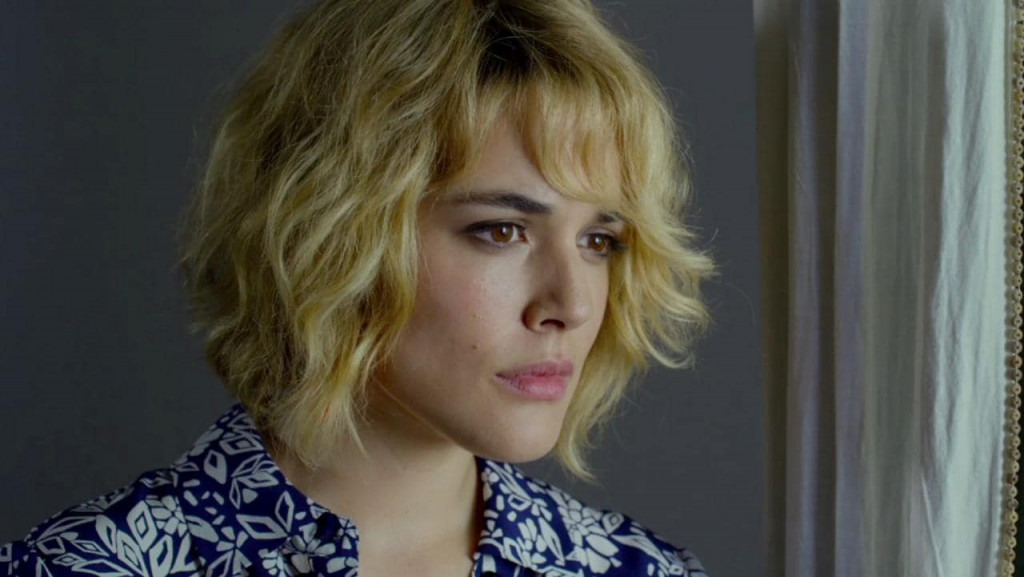
Pedro Almodóvar’s few id-tamped, grown-up movies are rarely the ones we remember. And the release of each of them, harking most recently to Volver, yields the usual critical musings about a renegade mellowing — an enfant terrible maturing into an elder statesman.
Enter the uncharacteristic sparseness of his latest, Julieta, which Almodóvar adapted from a seemingly incompatible source material: three short stories from Alice Munro’s Runaway collection. Certainly there are no Dadaist walk-through vaginas or radical aspect-ratio shifts or maniacal surgeons or gender-bending flight attendants dispensing drugs. It is adult Almodóvar, rooted carefully, consciously and sumptuously in the mechanics of classical studio filmmaking, but it’s hardly what Truffaut would call the cinema de papa.
Julieta may be a melancholy movie suffused in death and illness, but its pulse thrums with passion. Sex, as it should be, is filmed with a voracious hunger, and its flashbacks progress with a dreamlike sway and logic. Its tenor captures a pleasing dance of reality and unreality, of captured life and self-aware movieness. Most of all, it’s a clear-eyed, rich extension of the director’s career-long attempt to understand troubled women on the verge.
We first meet Julieta (Emma Suárez), a former teacher of classical literature, packing away books in her spartan, modernist Madrid apartment, in preparation for a long-awaited move to Portugal with her partner Lorenzo (Dario Grandinetti), an accomplished sculptor. But a chance meeting on the street with one of her adult daughter’s childhood friends opens up decades of suppressed memories.
Julieta retreats home, unpacks her belongings, sends Lorenzo away and begins to write a letter to her daughter Antia. The correspondence evolves into an epic, therapeutic biography of the eroded relationship between a mother and a daughter, from Antia’s day of conception to the events that led her to abandon her mother, without a word of explanation, more than 12 years ago.
Almodóvar visualizes Julieta’s narrative with bursts of Technicolor-conjuring primary colors, a score that paraphrases the emotional valleys of 1950s melodrama, and other formal echoes of directors who, like Almodóvar, straddled commercial and art-house methodologies. In their coolness and lack of histrionics, Max Ophuls’ devastating women’s pictures, including Letter From an Unknown Woman and The Earrings of Madame De…, are Julieta’s guiding lights.
So is Hitchcock. After all, Julieta’s apologia to her daughter begins on a train, with the startling sight and sound of a tree branch smacking the exterior window of the cabin where the younger, punkier Julieta (Adriana Ugarte) has settled in with a novel. Soon, a stag prances in surreal slow-motion astride the locomotive, like a cryptic warning, but of what? She meets a pair of men traveling alone, one of whom approaches her, the other she approaches. By the scene’s end, one will be dead and the other will have planted the seed of Antia.
Those accustomed to expecting the unexpected in Almodóvar’s ouevre will roll with these meta-dramatic plot points. His movies are chockablock with moments that only happen in movies, but what’s remarkable about Julieta is how these narrative ostentations diminish the longer his protagonist’s confessional continues, and they curdle into a stripped-down longing.
The tragedies that commence are as much a result of happenstance as Julieta’s mistakes, but the resulting rupture is all the same: Julieta is about, among other things, the sort of unaddressed guilt that metastasizes, like tree rot, through a family, where the only hope for reconnection is the kind of empathy gained through shared suffering. These ideas come to fruition in the extraordinary performance of Suárez as the elder Julieta — in the profound lostness in her eyes as they silently wail for a tether.
If this sounds like the only current-release film to out-bleak Manchester by the Sea, I’m misleading you: Julieta is so sharp and direct that it aggressively resists Kleenex. Almodóvar may be on his best behavior here, but he hasn’t mellowed. It’s just that in the entrancing tango between his bold cinematic imagination and Munro’s interior storytelling, he finally lets her lead.
JULIETA. Director: Pedro Almodóvar; Cast: Emma Suárez, Adriana Ugarte, Daniel Grao, Inma Cuesta, Michelle Jenner, Dario Grandinetti; in Spanish with English subtitles; Distributor: Sony Pictures Classics; Rating: R; Opens: Now playing at Regal Shadowood 16, Living Room Theaters at FAU, AMC Aventura 24, O Cinema Miami Beach, Regal South Beach 18 and Tower Theater in Miami